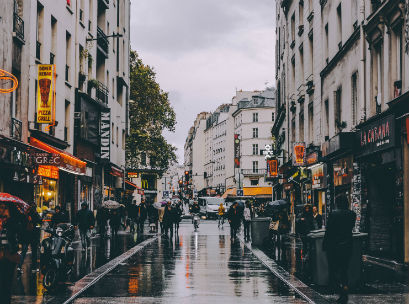 “Learning and innovation go hand in hand. The arrogance of success is to think that what you did yesterday will be sufficient for tomorrow.”
“Learning and innovation go hand in hand. The arrogance of success is to think that what you did yesterday will be sufficient for tomorrow.”
– William Pollard
Remember the good old days when our wants and needs where so simply satisfied by the composition of suppliers, distribution and buildings we know as shops?
We had a need, saw an advertisement were told by a friend, or walked by. Differentiation between retailers rested largely upon product differentiation.
As Retailers, we built large physical distribution networks, often in the castle of another company, that we refer to as shopping centres.
As communities grew typically outwards, we followed and even created myths about a shop on every corner (think the golden arches), suppliers provided product in relatively predictable pathways and processes – very homogeneous markets emerged and while it perhaps was not a perfect market in an economic sense, it was pretty close.
Governments changed with regular monotony and, we, as many retailers did, lived life inexorably unaware of the great disruptive forces emerging that would revolutionise and transform consumerism (and continue to do so at an even greater rate) creating deep and irreparable changes.
One consequence of this is the very and many increasing ways we, as consumers, can purchase a product.
Now as we look into the fast emerging future we see that the gap between a consumer seeing a product across many different channels and transacting is shortening dramatically.
As Harvard Business Review) said, the model is changing as new technologies allow people to bring the purchase of product that satisfies their needs closer to their first perception of it.
This makes the perception of the need — rather than the shop — critical to understand. There are clearly new ways that consumers are buying product and communicating with a product or service of their choice in different and emerging ways.
The new consumer never stops shopping and that alone is such a significant change to the classic model. There is no off switch now and purchasing has many different expressions, including instant purchasing (such as ordering from Prime, Uber and other businesses making their way here).
Machine intelligence with products that reorder disposable items without consumers being the initiator or for that matter the purchaser.
Think of household machines being able to sense and order their own spare parts or consumables. Sounds Orwellian or part of a dream? It is happening.
Ultimately who initiates the purchase is coming under great scrutiny as subscription based purchasing (think Spotify or Netflix) through to fresh food, and so on again, start to bypass the classic cycle).
As a physical store becomes less engaged in this emerging purchase process the traditional functional role of the retail shop (creating an assortment of products, providing product information, enabling transactions and providing physical distribution services) becomes possible to bypass, and this is the hub of the issue that physical shop retailing faces, and will continue to face.
Suddenly these earlier differentiation axis are now at best “hygiene factors “ for the physical shop retailer. Now they rapidly build the difference between what can be customised and what can be commoditised, whilst creating valuable and memorable customer experiences that speak to the human senses, and above all, what it is to be human within shops.
As the transaction gap shortens, the main future for retail shops (and there is a very large opportunity) is to pivot towards the experience of what it is to be human.
To tell and listen to stories, to build the tribe and to create shop experiences with differentiated and unique product offers that are a pleasure to visit whilst building the commodity transaction increasingly through supporting channels.
The machinery of retail is transforming, the heart and soul need not, however it will need alacrity of thinking, capital and passion.
Brian Walker is founder and CEO of Retail Doctor Group, retail and consumer experts and the Australian elected member of the global retail expert’s alliance Ebeltoft Group. Brian can be contacted on (02) 9460 2882 or brian@retaildoctor.com.au





